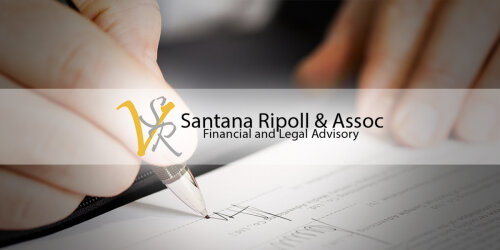Best Financial Services Regulation Lawyers in Puerto Plata
Share your needs with us, get contacted by law firms.
Free. Takes 2 min.
List of the best lawyers in Puerto Plata, Dominican Republic
About Financial Services Regulation Law in Puerto Plata, Dominican Republic
Financial Services Regulation in Puerto Plata, Dominican Republic, is primarily governed by the national laws and regulatory frameworks established by the Dominican government. These regulations are designed to ensure the stability, integrity, and efficiency of the financial system in the country. The Superintendence of Banks, the Superintendence of Securities, and other financial regulatory bodies play critical roles in overseeing financial institutions, enforcing compliance, and protecting consumers. In Puerto Plata, like elsewhere in the Dominican Republic, financial services regulation covers areas such as banking, securities, insurance, and anti-money laundering (AML) measures.
Why You May Need a Lawyer
There are several situations where individuals and businesses may require legal assistance with financial services regulation in Puerto Plata:
- Setting up a new financial institution or service, requiring navigation through complex regulatory requirements.
- Compliance issues related to existing financial regulations that may involve audits or investigations.
- Transactions that involve cross-border financial services, necessitating understanding of both domestic and international regulations.
- Legal disputes involving financial institutions or services, such as fraud, breach of contract, or consumer protection issues.
- Assistance with understanding new regulations or changes to existing laws that impact financial services.
Local Laws Overview
The Dominican Republic, including Puerto Plata, adheres to a comprehensive legal framework for financial services regulation that incorporates the following key aspects:
- Banking Law: Governs the operation and oversight of banking institutions, including licensing requirements and capital adequacy standards.
- Securities Market Law: Regulates activities related to securities trading, investment, and the operation of securities markets.
- Insurance Law: Provides the regulatory foundation for the operation of insurance companies, including licensing and consumer protection measures.
- Anti-Money Laundering (AML) and Counter-Terrorist Financing (CTF) Laws: Establishes measures to prevent and detect money laundering and terrorist financing activities.
- Consumer Protection Laws: Aims to ensure fair treatment of consumers and address grievances related to financial services.
Frequently Asked Questions
What is the role of the Superintendence of Banks in the Dominican Republic?
The Superintendence of Banks oversees the banking sector, ensuring compliance with financial regulations, stability of the financial system, and protection of consumers' interests.
Do I need a special license to operate a fintech company in Puerto Plata?
Yes, fintech companies may require a specific license depending on the services they offer, such as digital payment solutions or financial advice, to ensure compliance with national regulations.
What should I do if I suspect a financial scam or fraudulent activity?
You should report the incident to the relevant authorities, such as the Superintendence of Banks or the financial institution involved, and consider seeking legal counsel for further action.
Are there any specific regulations for cryptocurrency in the Dominican Republic?
Cryptocurrency is not yet fully regulated in the Dominican Republic, but establishments and transactions may fall under existing financial and fraud prevention regulations.
How can I ensure my financial institution complies with AML regulations?
Ensure thorough implementation of AML programs, staff training, regular audits, and report suspicious transactions to the relevant authorities.
What actions can be taken if a bank violates consumer protection laws?
Consumers can report violations to the relevant regulatory body and consider filing a legal claim for restitution and damages with the help of a legal professional.
Can foreign financial institutions operate freely in Puerto Plata?
Foreign financial institutions must comply with all local regulatory requirements and may require specific licensing or partnerships with local entities.
What are the penalties for non-compliance with financial regulations?
Penalties can range from fines and sanctions to suspension of operations or revocation of licenses, depending on the severity of the infraction.
Is it mandatory for insurance companies to have a local presence in Puerto Plata?
Insurance companies are generally required to have a recognized legal presence in the Dominican Republic, including compliance with local laws and licensing requirements.
How do changes in global financial regulations impact Puerto Plata?
Global changes can influence local regulations, necessitating updates and compliance to match international standards to maintain competitiveness and stability.
Additional Resources
Several resources and organizations can assist those seeking legal advice on financial services regulation in Puerto Plata:
- Superintendence of Banks: Offers guidance and supervision for banking operations.
- Superintendence of Securities: Oversees regulations related to securities markets.
- General Directorate of Internal Revenue (DGII): Provides assistance with tax-related aspects of financial regulations.
- Local Legal Firms: Professional legal services specializing in financial regulations.
Next Steps
If you require legal assistance in financial services regulation, consider the following steps:
- Identify the specific area of concern (e.g., compliance, licensing, disputes).
- Consult with a professional legal advisor or firm specializing in financial services regulation.
- Gather relevant documentation and information to present to your legal counsel.
- Engage with local regulatory bodies to understand any specific requirements or processes.
- Stay informed about changes in local and international financial regulations that may affect your activities.
Lawzana helps you find the best lawyers and law firms in Puerto Plata through a curated and pre-screened list of qualified legal professionals. Our platform offers rankings and detailed profiles of attorneys and law firms, allowing you to compare based on practice areas, including Financial Services Regulation, experience, and client feedback.
Each profile includes a description of the firm's areas of practice, client reviews, team members and partners, year of establishment, spoken languages, office locations, contact information, social media presence, and any published articles or resources. Most firms on our platform speak English and are experienced in both local and international legal matters.
Get a quote from top-rated law firms in Puerto Plata, Dominican Republic — quickly, securely, and without unnecessary hassle.
Disclaimer:
The information provided on this page is for general informational purposes only and does not constitute legal advice. While we strive to ensure the accuracy and relevance of the content, legal information may change over time, and interpretations of the law can vary. You should always consult with a qualified legal professional for advice specific to your situation.
We disclaim all liability for actions taken or not taken based on the content of this page. If you believe any information is incorrect or outdated, please contact us, and we will review and update it where appropriate.











